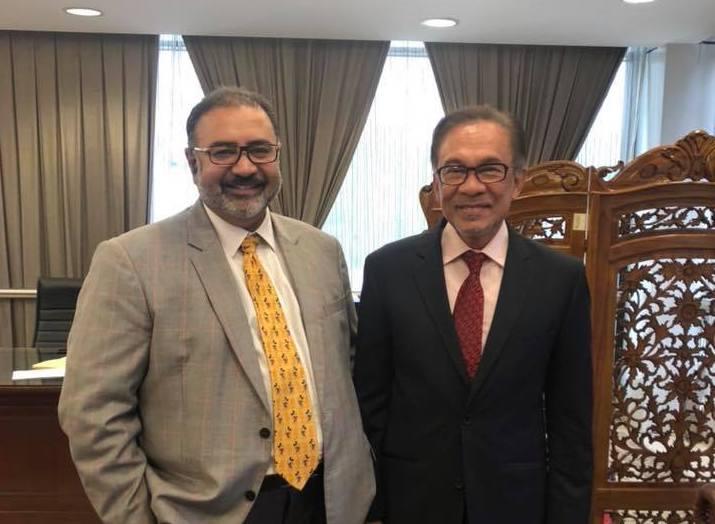Revealed: Warning by medical experts over ventilators sold to Hungary by Malaysian businessman
Authorities in UK had withdrawn hundreds of units while those in Colombia instructed the removal of others after a number of patient deaths.
Just In
A Malaysian businessman given a multi-billion contract to supply medical equipment to the government of Hungary in 2020 had sold ventilators that British doctors warned could endanger the lives of patients, MalaysiaNow can reveal.
The China-made ventilator models “Shangrila 510S” and “SH300” were among thousands sold to Hungary by Vinod Sekhar, a Malaysian businessman close to PKR chief Anwar Ibrahim, and who operates a chain of companies and organisations under the Petra Group.
Vinod is the subject of a money laundering investigation launched by multiple agencies including the Malaysian Anti-Corruption Commission (MACC), which raided the Petra Group office in Bangsar last November.
Information provided to MalaysiaNow from Hungarian investigative journalists showed that the two ventilator models were among 6,258 units bought by Budapest in a controversial deal approved by the European country’s Ministry of Foreign Affairs and Trade in 2020, at the height of the Covid-19 pandemic.
A copy of the agreement sighted by MalaysiaNow showed that Budapest had agreed to pay Vinod’s GR Technologies Sdn Bhd a total of US$559,600,000, which at the time of the contract in May 2020 converted to about RM2.43 billion.
Warning from UK doctors
But just a month before the agreement, senior British doctors had warned that ventilators of the “Shangrila” type that the UK bought from China were faulty, and could cause harm or even deaths if used in hospitals.
They pointed out problems with maintenance and oxygen supply as well as confusing instruction manuals, adding that the ventilators were built for use in ambulances, not hospitals.
“We believe that if used, significant patient harm, including death, is likely,” NBC News quoted a group of senior doctors writing in a letter dated April 13, 2020.
“We look forward to the withdrawal and replacement of these ventilators with devices better able to provide intensive care ventilation for our patients,” the letter added.

Some five months later, a 60-page report issued by the UK auditor-general on the purchase of ventilators for government hospitals in response to the Covid-19 pandemic confirmed the fears.
The report revealed that the Department of Health and Social Care had withdrawn 750 units of the “Shangrila 510S” ventilators, and cancelled a further purchase of 1,250 units from the manufacturer in Beijing.
“It withdrew the device, however, in response to concerns raised by some clinicians who, after testing the devices, did not consider them appropriate for use within an intensive care setting,” said the audit report, adding that the claim was confirmed by a clinical due diligence team.
The withdrawal of the 750 ventilators, procured for about £3,000 each, cost the UK government a total of £2.2 million (RM12.4 million).
Fatal ventilators in Colombia
At about the same time the UK audit report was released, health authorities in Colombia issued a warning that use of another ventilator model, the SH300, could be fatal, with at least six patient deaths linked to it.
Colombia’s National Institute for Food and Drug Surveillance instructed the removal of the SH300 after it found that the ventilator would stop or shut down unexpectedly, as well as deliver wrong data, citing compatibility issues as well.

It said it had been notified of 34 serious incidents caused by the ventilators involving 12 hospitals treating Covid-19 patients since July 2020.
‘Deadly ventilators’ warning
Meanwhile in Hungary, at about the same time the purchase was made from GR Technologies, the Hungarian Medical Chamber warned that “deaths among those requiring ventilator treatment and intubation are disproportionately high”.
The group also urged the government to investigate whether ventilators were being properly operated or if there were quality issues involved.
The Hungarian purchase of medical equipment in 2020 was touted as the single biggest purchase of medical equipment by an EU member-state, and infuriated Hungary’s opposition politicians who said the deals were opaque, overpriced and contributed to an oversupply.
Revelations that some of the ventilators supplied posed a health hazard have already sparked opposition to Prime Minister Viktor Orban’s government ahead of parliamentary elections this April.
“The fact that a single ventilator’s average cost was US$89,500 is outrageous on its own, but if we add the information from the UK and Colombia – namely that two types of said ventilators are dangerous and their use could cause the death of the patient – the issue becomes a health and security risk for our country,” Márton Tompos, who heads the anti-corruption committee of opposition party Momentum, told MalaysiaNow.
“After we defeat Orban’s corrupt government, we will launch a full-scale investigation into the purchase and the role of each participant of this shameful transaction,” he added.
This was a view echoed by the Hungarian chapter of anti-corruption watchdog Transparency International (TI-Hungary), which urged Budapest to release specific details of its purchase of medical equipment from Vinod.
TI-Hungary said there were questions about whether the contracts awarded to GR Technologies had fulfilled transparency regulations in Hungary.
“In this specific case, it is unclear how the Hungarian government selected or recruited GR Technologies to supply respirators and other related goods,” TI-Hungary’s head of legal affairs division Miklos Legati told MalaysiaNow last August.
Subscribe to our newsletter
To be updated with all the latest news and analyses daily.
